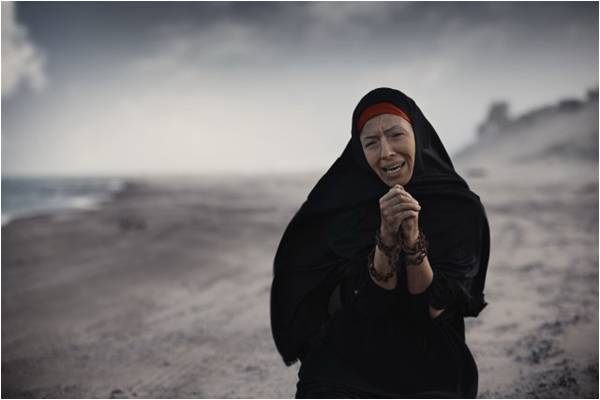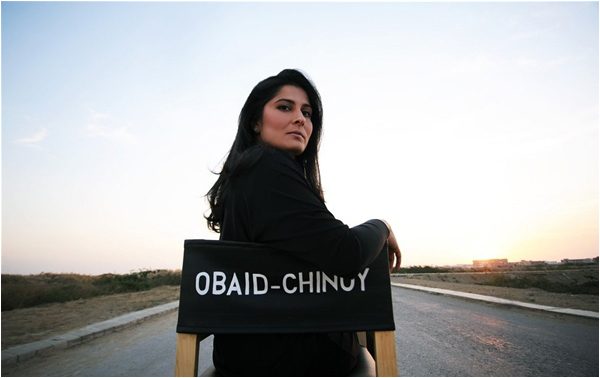
Sharmeen Obaid Chinoy has made Pakistan proud again. On February 29, she won a second Oscar award, this time for her short documentary A Girl in the River - The Price of Forgiveness.
As a conscientious professional, Ms Chinoy has used her art to tell stories of Pakistani girls who were attacked in the name of honour. But is that enough? Noted columnist Rafia Zakaria has rightfully pointed out in a recent article that saving Pakistani women from honour killings requires more than telling their stories.
In 2015, 322 women were murdered in the name of honour in Punjab. That means one innocent woman was killed almost every day. The number has been consistent over the years. The highest number of such murders took place in Faisalabad and Sheikhupura divisions, where close to 100 women were killed in the name of honour. Rawalpindi division is at the bottom of the list with 10 honour killings. These figures are based on registered cases, and do not include women who “die in mysterious circumstances”, including some belonging to ‘respectable’ families.
Honour killings and violence against women are not restricted to one province or area. Several years ago, when I was the Head of Investigation in Peshawar police, more than 85 women were killed in such cases in one year. That number is alarmingly high for just one city. We can see a similar pattern in Sindh.
When they are not killed, women who want to live their lives the way they want – a right given to them by both law and religion – are subjected to such practices as Wani, Swara, and Kari. Thousands more are beaten, and many are made to suffer because of false cases if they choose to marry without their parents’ consent. Their life partners are also targeted. The lives of millions of other girls are ruined when they are married without their consent, which is like rigorous life imprisonment.

Honour killings became virtually unpunishable with the introduction of the Qisas and Diyat laws in 1990. These new regulations allowed the family of a murder victim to pardon the perpetrator. When the family were the murderers, it was a legal dead end. The laws did contain a provision for the government to intervene in cases of Fisad Fil Arz, but it was rarely invoked.
In 2006, a concerted attempt was made to rectify the anomaly with the promulgation of the Protection of Women Act, and the mention of Qatl, or murder, in the name of honour was inserted in sections 302 and 311 of the Pakistan Penal Code. It was a very significant piece of legislation in cases of forced marriage and evidence in Hadood laws, but in cases of honour killing, it was largely ineffective.
In personal crimes, prosecution had for ages been a prerogative – as well as responsibility – of the complainant. But the Qisas and Diyat laws institutionalized it. Now, the complainant has to file the case, and also collect or concoct evidence for prosecution. The only positive outcome was that the complainant remained involved in the cases, and conviction rates were considerably higher than other offences – even terrorism. But when the family is itself responsible for the murder, the case is doomed.
When women are killed for honour, cases are usually not registered. If a vigilant police officer registers a case with police as the complainant, the family resists vehemently. There are no witnesses and no evidence. Another common tactic, used by families aware of legal loopholes, is that one brother registers a case against the other, and the evidence is later retracted.
Of the more than 300 cases of honour killings registered in Punjab last year, only a handful made use of Section 311 – which allows a court to punish an honour killing convict even if the complainant waives the right of Qisas. That did not make too much of a difference, because most of such cases are quashed because of lack of evidence.
The menace of honour killings has become a national shame. We can take pride in the two Oscars, but it is hardly comforting to be known around the world as a society that shoots its teenagers, kills its women, and throws acid on its girls when they ask for their rights.
It is time for those at the top to have a Sir Charles Napier moment. He had said to the Hindus who were defending Satti as their custom: “Be it so. This burning of widows is your custom; prepare the funeral pile. But my nation has also a custom. When men burn women alive we hang them, and confiscate all their property.”
As a conscientious professional, Ms Chinoy has used her art to tell stories of Pakistani girls who were attacked in the name of honour. But is that enough? Noted columnist Rafia Zakaria has rightfully pointed out in a recent article that saving Pakistani women from honour killings requires more than telling their stories.
In 2015, 322 women were murdered in the name of honour in Punjab. That means one innocent woman was killed almost every day. The number has been consistent over the years. The highest number of such murders took place in Faisalabad and Sheikhupura divisions, where close to 100 women were killed in the name of honour. Rawalpindi division is at the bottom of the list with 10 honour killings. These figures are based on registered cases, and do not include women who “die in mysterious circumstances”, including some belonging to ‘respectable’ families.
Honour killings and violence against women are not restricted to one province or area. Several years ago, when I was the Head of Investigation in Peshawar police, more than 85 women were killed in such cases in one year. That number is alarmingly high for just one city. We can see a similar pattern in Sindh.
"Be it so. This burning of widows is your custom; prepare the funeral pile. But my nation has also a custom. When men burn women alive we hang them, and confiscate all their property"
When they are not killed, women who want to live their lives the way they want – a right given to them by both law and religion – are subjected to such practices as Wani, Swara, and Kari. Thousands more are beaten, and many are made to suffer because of false cases if they choose to marry without their parents’ consent. Their life partners are also targeted. The lives of millions of other girls are ruined when they are married without their consent, which is like rigorous life imprisonment.

Honour killings became virtually unpunishable with the introduction of the Qisas and Diyat laws in 1990. These new regulations allowed the family of a murder victim to pardon the perpetrator. When the family were the murderers, it was a legal dead end. The laws did contain a provision for the government to intervene in cases of Fisad Fil Arz, but it was rarely invoked.
In 2006, a concerted attempt was made to rectify the anomaly with the promulgation of the Protection of Women Act, and the mention of Qatl, or murder, in the name of honour was inserted in sections 302 and 311 of the Pakistan Penal Code. It was a very significant piece of legislation in cases of forced marriage and evidence in Hadood laws, but in cases of honour killing, it was largely ineffective.
In personal crimes, prosecution had for ages been a prerogative – as well as responsibility – of the complainant. But the Qisas and Diyat laws institutionalized it. Now, the complainant has to file the case, and also collect or concoct evidence for prosecution. The only positive outcome was that the complainant remained involved in the cases, and conviction rates were considerably higher than other offences – even terrorism. But when the family is itself responsible for the murder, the case is doomed.
When women are killed for honour, cases are usually not registered. If a vigilant police officer registers a case with police as the complainant, the family resists vehemently. There are no witnesses and no evidence. Another common tactic, used by families aware of legal loopholes, is that one brother registers a case against the other, and the evidence is later retracted.
Of the more than 300 cases of honour killings registered in Punjab last year, only a handful made use of Section 311 – which allows a court to punish an honour killing convict even if the complainant waives the right of Qisas. That did not make too much of a difference, because most of such cases are quashed because of lack of evidence.
The menace of honour killings has become a national shame. We can take pride in the two Oscars, but it is hardly comforting to be known around the world as a society that shoots its teenagers, kills its women, and throws acid on its girls when they ask for their rights.
It is time for those at the top to have a Sir Charles Napier moment. He had said to the Hindus who were defending Satti as their custom: “Be it so. This burning of widows is your custom; prepare the funeral pile. But my nation has also a custom. When men burn women alive we hang them, and confiscate all their property.”

